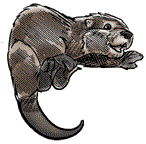 Wisconsin Lakes Partnership
Wisconsin Lakes Partnership
2012 Convention Archive
Wednesday
Concurrent Sessions 2
April 11, 2012
1:40-2:30 pm
All Things Invasive
Phragmites and Other Shoreline Invasives
Declines in Lake Michigan water levels have exposed thousands of acres of new lakebed which has rapidly been colonized by invasive Phragmites and Lyme grass. The presence of these two species has resulted in habitat degradation and out right loss of some coastal wetlands and Great Lakes dunes and beaches. To combat this problem, (WDNR) partnered with nine conservation partners and over 1,500 private landowners to spray on both public and adjacent private lands. The partnership entailed securing permissions to spray the riparian land adjacent to private lands below the ordinary high water mark (OHWM). In 2011, a coordinator was hired and year one of a three year grant begun its treatment.
Presenter: Heidi Springborn, Conservation Biologist, WDNR
Native Plants & Animals
Wild Rice Soup: An Overview of the Ecology, History, and Harvest of an Amazing Wetland Plant
Northern Wisconsin is fortunate to be part of the "Wild Rice Bowl": that small part of the world where this incredible wetland plant naturally grows in relative abundance. Primarily because of its great nutrient content, wild rice has been a mainstay resource for both humans and wildlife species in this region for thousands of years, and it has left its mark not only on our landscape, but in our history books and oral traditions as well. This presentation will provide an overview of the ecological and cultural significance of wild rice, review its interesting role in the history of our state, and look at some of the wildlife species that benefit from wild rice. Also included will be an overview of how wild rice is harvested by humans today and how you might join the ranks of those who practice the traditional and rewarding art of making rice.
Presenter: Peter David, Wildlife Biologist, Great Lakes Indian Fish and Wildlife Commission
AIS Research
Effects of 2-4D Exposure on Fathead Minnows
The aim of the present study is to assess the effects of 2, 4-Dichlorophenoxyacetic acid aquatic herbicides on fathead minnow reproduction and early development utilizing the fish short-term reproduction assay and an embryo development assay. For the reproduction assay, groups of reproductively mature fathead minnows will be exposed for 21 days to nominal concentrations of 0, 0.05, 0.50, and 2.00 ppm WeeDestroy AM40 in a flow-through system and various reproductive endpoints (e.g., egg number, fertilization success) will be quantified daily. At the end of the 21 day reproduction assay adult animals will be euthanized, weighed, and secondary sexual characteristics will be scored. Additionally, blood, gonads and liver will be collected for analysis of sex steroids, gonad histology, and vitellogenin hepatic mRNA expression. Early development and hatch success will be assessed by incubating fathead minnow eggs at the same ecologically relevant concentrations. These data and future directions will be discussed.
Presenter: Zach DeQuattro, UW-Madison
Advocating for Lakes
Legislative Updates
This session will highlight current legislative activity important to Wisconsin’s lakes. We will review updates on the current status of proposed legislation to streamline DNR waterway and wetland regulations, changes to statewide shoreland management rules, reform of State mining and groundwater laws, and other policies affecting our waters.
Presenter: John Keckhaver, Government Relations & Analysis LLC & Wisconsin Lakes Lobbyist
County Land & Water Resources
In It for the Long Haul - Two Decades of Working to Protect Marinette Co. Lakes
Over the last 20 years The Marinette County LWCD has developed a strong working relationship with lake organizations in the County. This presentation will focus on how the Marinette County LWCD works to strengthen local lake groups, from assisting with the formation of lake associations and districts, to working with the local governments, to helping lake groups take advantage of the many state grant opportunities. Lake groups in Marinette County benefit from this relationship by receiving ongoing professional lake management advice and services necessary to manage complex systems and address evolving lake management issues. All of this is well illustrated through Marinette County LWCDs long history of working with the Lake Noquebay Rehabilitation District and the Beecher Lake District in their efforts to address runoff pollution, manage aquatic plants and respond to AIS invasions.
Presenter: Chuck Druckrey, Marinette County LWCD
Adventures in Lake Management
Eagle Lake Biomanipulation Project
Wednesday 1:40-2:30 pm
In 2008, Eagle Lake in Racine County underwent large-scale biomanipulation in order to reverse declining water quality, alter the fish community, and bring the aquatic plant community into balance. Hear the history, and learn the results.
Presenter: Craig Helker, Water Resources Management Specialist, WDNR
